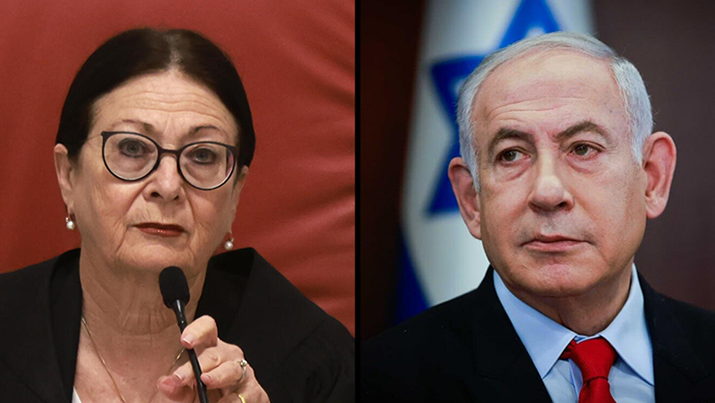Getting your Trinity Audio player ready...
Israel's supreme court on Wednesday delayed the implementation of an amendment to a basic law that would protect the prime minister from being forced to recuse himself if ordered to do so by the attorney general or the supreme court.
Read more:
In a five to six judge majority the court said in a 212 page decision that the amendment would be postponed until the next elected Knesset saying it was "clearly personal in nature" and constituted a misuse of the Knesset's Constituent authority.
2 View gallery


Esther Hayut, Benjamin Netanyahu
(Photo: Menahem Kahana / AP, Haim Goldberg / Flash 90)
The judges said the personal nature of the amendment was evident by public statements made by member of the parliament during the legislative process and because it was tabled for a vote immediately after petitions were filed with the court, calling for Netanyahu's removal from office, as well as from statements Netanyahu himself had made after the Knesset approved the amendment.
Outgoing Chief Justice Esther Hayut wrote in her ruling on Wednesday that a review of the entirety of the circumstances bears witness to the fact that the main purpose for the amendments legislation is to respond to a concrete legal threat that the sitting prime minister faced, in the eyes of the legislators.
The ruling comes just days after the court struck down a law that removed the Supreme Court's ability to overrule legislation, as part of the judicial overhaul introduced by the Prime Minister Benjamin Netanyahu's coalition, which sparked mass protests lasting long months and ending only when Hamas carried out its massacre on October 7.
Political watchdog groups and an opposition party challenged the March 23 amendment to a quasi-constitutional "Basic Law" that Netanyahu's own attorney general described as designed to preserve his tenure amid a long-running graft trial.
The court reinstates the so-called reasonableness clause which grants it oversight of government decisions. This marked the first time the court has ruled on one of Israel's quasi-constitutional Basic Laws.


